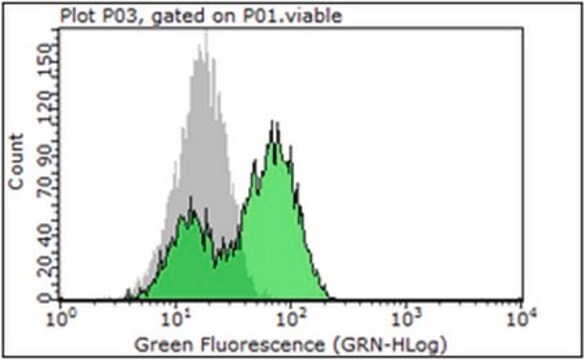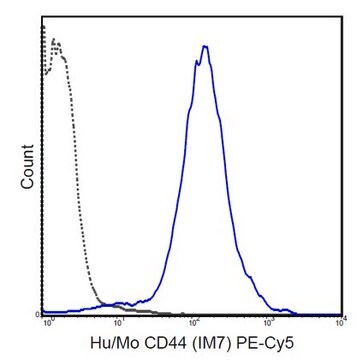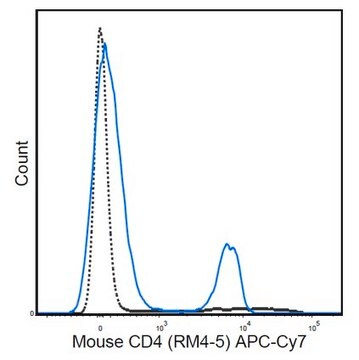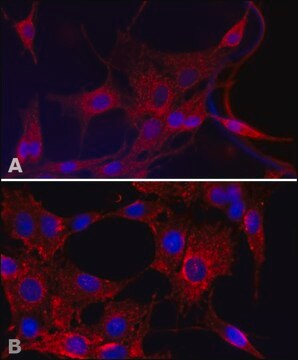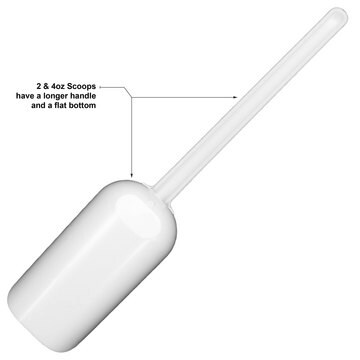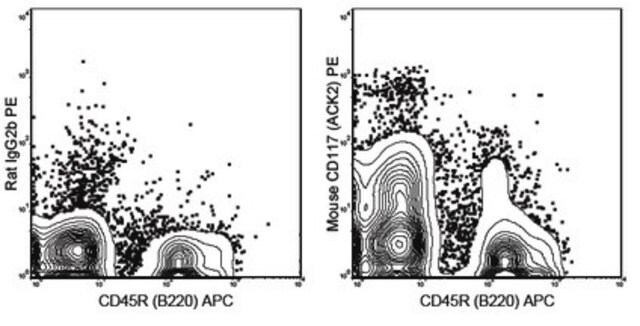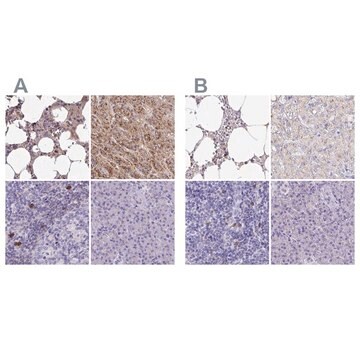MABF580
Anti-CD44 Antibody (human/mouse), APC, clone IM7
clone IM7, 0.2 mg/mL, from rat
Synonym(e):
CD44 antigen, Extracellular matrix receptor III, ECMR-III, GP90 lymphocyte homing/adhesion receptor, HUTCH-I, Hermes antigen, Hyaluronate receptor, Lymphocyte antigen 24, Ly-24, Phagocytic glycoprotein 1, PGP-1, Phagocytic glycoprotein I, PGP-I, CD44
About This Item
Empfohlene Produkte
Biologische Quelle
rat
Qualitätsniveau
Konjugat
Allophycocyanin conjugate
Antikörperform
purified antibody
Antikörper-Produkttyp
primary antibodies
Klon
IM7, monoclonal
Speziesreaktivität
mouse, human
Verpackung
antibody small pack of 25 μg
Konzentration
0.2 mg/mL
Methode(n)
flow cytometry: suitable
immunohistochemistry: suitable
immunoprecipitation (IP): suitable
western blot: suitable
Isotyp
IgG2bκ
UniProt-Hinterlegungsnummer
Versandbedingung
wet ice
Posttranslationale Modifikation Target
unmodified
Angaben zum Gen
human ... CD44(960)
mouse ... Cd44(12505)
Allgemeine Beschreibung
Immunogen
Anwendung
Entzündung & Immunologie
Qualität
Flow Cytometry Analysis: 0.125 μg of this antibody detected CD44 in one million C57Bl/6 splenocytes.
Physikalische Form
Lagerung und Haltbarkeit
Haftungsausschluss
Sie haben nicht das passende Produkt gefunden?
Probieren Sie unser Produkt-Auswahlhilfe. aus.
Lagerklassenschlüssel
12 - Non Combustible Liquids
WGK
nwg
Flammpunkt (°F)
Not applicable
Flammpunkt (°C)
Not applicable
Analysenzertifikate (COA)
Suchen Sie nach Analysenzertifikate (COA), indem Sie die Lot-/Chargennummer des Produkts eingeben. Lot- und Chargennummern sind auf dem Produktetikett hinter den Wörtern ‘Lot’ oder ‘Batch’ (Lot oder Charge) zu finden.
Besitzen Sie dieses Produkt bereits?
In der Dokumentenbibliothek finden Sie die Dokumentation zu den Produkten, die Sie kürzlich erworben haben.
Unser Team von Wissenschaftlern verfügt über Erfahrung in allen Forschungsbereichen einschließlich Life Science, Materialwissenschaften, chemischer Synthese, Chromatographie, Analytik und vielen mehr..
Setzen Sie sich mit dem technischen Dienst in Verbindung.